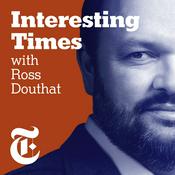358 episodes

Ep 232: US Meddling, the Limits of 'Agency' Discourse and How Media Chooses Which 'Voices' To Center
10/12/2025 | 1h 29 mins.
In this episode, we discuss the uses and misuses of liberal standpoint theory to promote US meddling, sanctions, and bombing. With guest Vincent Bevins.

News Brief: BBC's Gaza Double Standard and Western Liberalism's Crisis of Legitimacy
03/12/2025 | 44 mins.
In this News Brief, we interview journalist Daniel Trilling and discuss his investigation into the BBC's systemic anti-Palestinian bias.

Ep 231 - How To Oppose Genocide Without Opposing Genocide (Part 2): AIPAC Dems' Fake Israel Criticisms
26/11/2025 | 1h 17 mins.
In this episode, we detail the buyers' market for superficial Gaza critiques that permit ambitious Democrats to look pro-Palestine without the downside of actually being so. With guest Tariq Kenney-Shawa.

Ep 230 - How To Oppose Genocide Without Opposing Genocide (Part 1): Biden World's Reputation Laundering PR Tour
19/11/2025 | 1h 41 mins.
In this episode, we detail recent attempts by former Biden officials to rewrite history and absolve themselves of responsibility for the horrors of Gaza, and lay out the emerging Dem-aligned media industry of vibing past Democrats' lockstep support for genocide.

Citations Needed Live Show Beg-a-Thon: MAHA, TikTok and the Rise of Health-Branded Fascism
10/11/2025 | 54 mins.
In this Live Show Beg-a-Thon from 10/13, we are joined by Justin Feldman to discuss the rise of MAHA, the broader Granola-to-Fascist Pipeline and how corporate-written food policies and our shitty for-profit medical system fuel hucksterism.
More News podcasts
Trending News podcasts
About Citations Needed
Listen to Citations Needed, The Daily and many other podcasts from around the world with the radio.net app

Get the free radio.net app
- Stations and podcasts to bookmark
- Stream via Wi-Fi or Bluetooth
- Supports Carplay & Android Auto
- Many other app features
Get the free radio.net app
- Stations and podcasts to bookmark
- Stream via Wi-Fi or Bluetooth
- Supports Carplay & Android Auto
- Many other app features


Citations Needed
download the app,
start listening.































